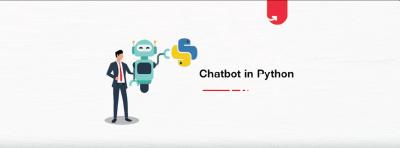All courses
Certifications
- Study abroad
- Offline centres
More
Artificial Intelligence Courses
Top Artificial Intelligence courses cover foundational, technical, and basics of Generative AI. From core concepts to advanced model building and deployment, they prepare you for diverse AI roles across industries.
Learn from faculty at globally top-ranked universities
Earn an average salary hike of 51% after completion
-d365049d54604e59b9241feaed93b89e.webp&w=3840&q=75)
1:1 Coaching
Mock Interviews
Access to Job Portal






Our Top University Partners
Artificial Intelligence (AI) Course Projects: Learn by Doing
17+
Projects
Learn Artificial Intelligence From The Best Instructors
8
Instructors
8
Industry Experts
Services to Help You Achieve Your Goal
Access the various career developement support services offered by upGrad to help you achieve your professional goals
Receive unparalleled guidance from industry mentors, teaching assistants, and graders


What Our Learners Have To Say About Artificial Intelligence Course
Latest AI Industry Trends
The AI Industry is growing rapidly and is expected to continue to do so in the coming years. As Artificial Intelligence becomes more sophisticated and accessible, it is likely to have a major impact on all industries
95%
Businesses expect AI to have a positive impact on their industry in the next five years
37%
Organisations have adopted AI
16%
Expected to replace all US jobs in less than half a decade
77%
Businesses are using AI for automation
Artificial Intelligence Course Overview
Everything You Need to Know About Artificial Intelligence
Frequently Asked Questions about AI Course
1. What is an artificial intelligence course online?
An online artificial intelligence course is a structured program that teaches how machines learn from data and make intelligent decisions. These courses typically combine theory with hands-on practice in machine learning, deep learning, and data modelling. Learners access lectures, coding labs, and projects through digital platforms, making it possible to study from anywhere.
Many programs also include mentorship, industry case studies, and career guidance. For Indian learners, online AI courses offer flexibility while building practical skills needed to design, train, and deploy intelligent systems used in real business environments.
2. What topics are covered in AI courses online?
Most AI programs cover both foundational and advanced technical concepts. Learners typically study:
- Statistics and probability for data analysis
- Data preprocessing and machine learning algorithms
- Neural networks for intelligent systems
Advanced modules often include:
- Deep learning, NLP, and computer vision
- Model deployment for real-world applications
Many programs also introduce generative AI, cloud computing, and MLOps. Overall, the curriculum helps learners build, evaluate, and apply AI solutions to real industry problems.
3. Can someone learn AI fully online without classroom sessions?
Yes, many learners successfully complete AI programs entirely online. Reputable programs provide recorded lectures, live classes, coding labs, assignments, and mentor support through digital platforms. Learners interact with instructors and peers through discussion forums and virtual sessions.
Online learning platforms like upGrad offers flexibility for working professionals and students.
4. How long does it take to complete an AI course online?
The duration depends on program depth and learning format. Beginner certification courses typically take 3–6 months. Advanced diploma or postgraduate programs often run for 9–18 months.
Full master’s degrees may take up to two years. Part-time learners usually follow structured weekly schedules, while intensive bootcamps finish faster but require more hours per week. Learners should choose a timeline that fits their career goals and availability.
5. How much time per week is needed for an AI course?
Most structured AI programs require around 8–12 hours of study per week. Advanced programs with complex projects may require up to 15 hours weekly. Study time includes watching lectures, coding practice, assignments, and revision. Working professionals typically study evenings or weekends. Consistent weekly effort is more effective than occasional intensive study sessions.
6. Does someone need coding experience to start an AI course?
Many beginner programs do not require prior coding experience. They introduce programming basics before moving into machine learning. However, learners with logical thinking and problem-solving skills usually adapt faster. Intermediate and advanced programs may expect some programming familiarity. Beginners can still succeed if they practice consistently and follow structured learning paths.
7. Should someone learn Python before an AI course?
Learning basic Python beforehand makes the learning process smoother. Python is widely used in AI because it supports powerful machine learning libraries. Understanding basic syntax, loops, and functions allows learners to focus on AI concepts instead of struggling with programming fundamentals. Many programs teach Python from scratch, but prior exposure improves confidence and speed.
8. What programming languages are important for AI courses?
Python is the primary language used in AI development. Some programs also teach R for statistical analysis and SQL for data handling. Advanced learners may encounter C++ for performance optimization. However, most AI workflows rely heavily on Python because of its simplicity and large ecosystem of machine learning libraries.
9. Is math required for taking an AI online course?
AI relies on mathematical concepts such as statistics, probability, linear algebra, and basic calculus. These concepts help learners understand how models learn from data. Beginner programs usually teach required math gradually with practical examples. Learners do not need advanced academic mathematics to start, but they should be willing to understand core concepts.
10. What common mistakes do beginners make in AI courses?
Many beginners focus only on theory without practicing coding regularly. Some skip foundational topics like data preprocessing or statistics. Others try advanced models too early without understanding basics. Many learners also fail to build project portfolios. Successful learners stay consistent, practice regularly, and apply concepts through real datasets.
11. What algorithms do learners study in an AI course?
Learners typically study regression models, decision trees, clustering algorithms, support vector machines, and ensemble methods. Advanced programs introduce neural networks and deep learning architectures. These algorithms help machines identify patterns and make predictions from data.
12. Do learners study neural networks and deep learning?
Yes, most comprehensive programs teach neural networks and deep learning. Learners understand how multi-layer models process complex data such as images, speech, and text. Advanced topics include convolutional networks, recurrent networks, and transformer architectures.
13. How do AI courses teach large language models?
Courses explain transformer architecture, embeddings, and attention mechanisms. Learners study how language models process context and generate responses. Many programs include practical exercises using pretrained models and prompt engineering techniques.
14. Do AI courses cover generative AI and large language models?
Most modern AI programs include introductory modules on generative AI. Learners explore text generation, conversational systems, and creative AI applications. Advanced programs may provide deeper technical training on generative architectures.
15. What AI tools do learners use in courses?
AI courses expose learners to a range of industry-standard tools used for data analysis, model development, and experimentation. These tools help learners move from theory to practical implementation.
Common tools include:
- Jupyter Notebook / Google Colab for writing and testing code
- Data visualization libraries like Matplotlib and Seaborn
- Machine learning libraries such as Scikit-learn
- Cloud platforms for large-scale model training
- Version control systems (Git/GitHub) for project management
By working with these tools, learners develop practical skills required in real AI development environments.
16. What frameworks like TensorFlow or PyTorch are taught?
Most AI programs teach deep learning frameworks that help learners build and train complex neural networks efficiently. TensorFlow and PyTorch are the most widely used frameworks in industry and research.
Learners typically use these frameworks to:
- Design neural network architectures
- Train models using large datasets
- Optimise performance through tuning
- Test and validate predictions
- Deploy trained models into applications
Understanding these frameworks allows learners to build production-ready AI solutions and work with modern deep learning systems.
17. How do AI courses teach data preprocessing?
AI courses teach data preprocessing as a critical step before model training. Learners understand that clean and well-structured data directly improves model accuracy and reliability.
Programs usually train learners to:
- Handle missing or inconsistent data
- Remove noise and outliers
- Transform and scale variables
- Encode categorical features
- Engineer meaningful input features
18. How do AI courses teach model evaluation?
AI courses teach learners how to measure whether a model performs well and makes reliable predictions. Model evaluation ensures that systems work accurately on new, unseen data.
Learners typically study:
- Accuracy for overall correctness
- Precision and recall for classification quality
- F1 score for balanced evaluation
- Confusion matrix for error analysis
- Cross-validation techniques for performance testing
19. Do learners study AI model deployment?
Yes, advanced AI programs teach how to deploy models into real-world environments where users or systems can access them. Deployment transforms a trained model into a functional application.
Learners usually practice:
- Creating APIs to serve predictions
- Using cloud platforms for hosting models
- Packaging models with containers
- Monitoring performance after deployment
20. Do AI courses teach practical projects with real data?
Yes, strong AI programs prioritise learning through real-world datasets and problem-solving scenarios. Instead of working only with theory, learners build solutions similar to those used in industry.
They typically work on:
- Predictive analytics using business data
- Classification models for decision-making
- Automation and recommendation systems
Working with real data helps learners understand practical challenges such as noise, bias, and scalability, which prepares them for professional AI roles.
21. Which AI courses focus on hands-on learning?
Career-oriented AI programs emphasise implementation rather than only conceptual learning. These courses include structured practice environments that simulate workplace challenges.
Hands-on programs typically provide:
- Coding labs and guided exercises
- Industry-style assignments
- Real dataset experimentation
- Mentor feedback on projects
- Applied case studies from business scenarios
Such programs help learners build job-ready skills instead of only theoretical knowledge.
22. What projects do learners build in an AI course?
AI learners build practical projects that demonstrate how intelligent systems solve real problems. These projects help them apply algorithms, data processing, and model evaluation techniques together.
Common project examples include:
- Product recommendation systems
- Fraud detection models
- Customer segmentation analysis
- Chatbots and conversational AI
- Image classification and object detection
23. Do AI courses include capstone projects?
Many advanced AI programs include a capstone project as the final assessment. A capstone integrates all the knowledge and skills learned throughout the course into one large, real-world problem.
In a capstone project, learners typically:
- Define a business or technical problem
- Collect and prepare data
- Build and evaluate models
- Present results and insights
24. Do projects help build a portfolio?
Yes, project work forms the foundation of a strong professional portfolio. Employers evaluate practical experience more than theoretical knowledge, especially in technical roles.
A good AI project portfolio shows:
- Coding ability and technical skills
- Real problem-solving experience
- Understanding of model design and evaluation
- Ability to communicate results clearly
A well-documented portfolio significantly improves job interview opportunities and career prospects.
25. Do AI courses teach business applications?
Yes, most modern AI programs teach how organisations use AI to improve decision-making and efficiency. Learners explore how data-driven models solve real operational and strategic problems.
Common business applications covered include:
- Customer behaviour prediction
- Process automation
- Risk assessment
- Personalised recommendations
- Demand forecasting
26. Are ethics and responsible AI part of AI training?
Yes, responsible AI is now an essential part of most professional programs. Learners study how AI systems affect people, organisations, and society.
Ethics modules typically cover:
- Data privacy and security
- Transparency and accountability
- Responsible model design
- Regulatory considerations
27. How do courses address fairness and bias in AI systems?
AI courses teach learners how bias enters data and how it affects predictions. They also explain techniques to detect and reduce unfair outcomes.
Learners usually study:
- Sources of bias in datasets
- Fairness metrics and evaluation methods
- Bias mitigation techniques
- Model transparency practices
28. What advanced topics follow AI basics?
After learning foundational machine learning concepts, learners typically move into specialised and more complex areas of AI.
Common advanced topics include:
- Deep learning and neural networks
- Natural language processing
- Computer vision
- Reinforcement learning
- Generative AI models
These areas allow learners to build sophisticated intelligent systems used in cutting-edge applications.
29. Which advanced AI topics lead to higher pay jobs?
Certain AI specialisations are in particularly high demand and often lead to higher-paying roles due to their technical complexity and business impact.
High-value specialisations include:
- Deep learning engineering
- MLOps and model deployment
- Generative AI development
- Large-scale data modelling
Professionals with expertise in these areas often work on complex systems that directly influence organisational performance.
30. Are NLP specialisation courses available?
Yes, many AI programs offer specialised training in natural language processing. NLP focuses on enabling machines to understand and generate human language.
Platforms like upGrad also offer beginner-friendly NLP learning options, including the course “How ChatGPT Understands You: Intro to NLP.” This program helps learners understand how modern language models process text, interpret intent, and generate human-like responses, making it a practical starting point for anyone interested in conversational AI.
31. Are computer vision courses available?
Yes, learners can specialise in computer vision, which focuses on enabling machines to interpret visual information from images and videos.
Computer vision courses typically cover:
- Image classification and object detection
- Facial recognition systems
- Video analysis and tracking
- Medical image analysis
32. Can reinforcement learning be learned online?
Yes, many advanced AI programs teach reinforcement learning through structured theory and simulation-based practice. Learners study how intelligent agents make decisions by interacting with environments and receiving rewards or penalties. Courses typically cover policy optimisation, value functions, and training techniques.
Online platforms like upGrad often use simulated environments such as game scenarios or control systems so learners can experiment safely. With guided projects and mentor support, learners can understand how reinforcement learning powers robotics, recommendation engines, and autonomous systems.
33. Are robotics AI courses available?
Yes, some specialised programs combine artificial intelligence with robotics and automation technologies. These courses focus on how intelligent algorithms control machines that interact with physical environments. Learners typically study perception systems, motion planning, and decision-making models used in robotics.
Many programs include simulation tools that allow learners to design and test robotic behaviours virtually. Robotics-focused AI education is especially useful for careers in manufacturing automation, autonomous vehicles, and industrial robotics.
34. Can learners specialise in AI by industry?
Yes, many advanced AI programs offer industry-specific learning tracks that apply AI techniques to real business domains. This helps learners develop practical expertise aligned with sector needs.
Common industry specialisations include:
- Healthcare analytics and medical imaging
- Financial risk modelling and fraud detection
- Retail demand forecasting and recommendation systems
- Manufacturing automation and predictive maintenance
Industry-focused training helps learners understand domain data, regulations, and business challenges, which improves job readiness.
35. What are the best online platforms for AI learning?
Indian learners often prefer structured programs that combine academic credibility, industry relevance, and career support. Strong platforms typically partner with recognised universities and provide hands-on training, mentorship, and placement assistance.
For example, upGrad collaborates with institutions such as IIIT Bangalore, Liverpool John Moores University, and Indian Institute of Management Udaipur to deliver industry-oriented AI programs. Learners should evaluate platforms based on curriculum depth, practical exposure, and career outcomes rather than brand name alone.
36. Which AI course suits beginners best?
The best beginner-friendly AI courses introduce concepts gradually and build strong foundations before moving into advanced topics. A good beginner program typically starts with Python programming, statistics, and data handling, followed by basic machine learning models.
Structured assignments and guided projects help learners apply concepts step by step. Courses that provide mentorship and doubt-clearing support are especially helpful for learners without prior technical backgrounds.
37. Are university-certified AI courses available online?
Yes, many universities now offer fully online AI programs with recognised academic credentials. These programs follow structured curricula, formal assessments, and certification standards similar to on-campus learning. University-certified courses often carry greater professional credibility and may support long-term academic progression.
Platforms like upGrad collaborate with leading institutions such as IIIT Bangalore, Liverpool John Moores University, and Indian Institute of Management Udaipur to deliver university-certified AI programs online. These partnerships allow learners to gain accredited qualifications along with industry-relevant practical training.
38. Do AI courses provide certificates?
Most structured AI programs award completion certificates after learners finish required modules and assessments. These certificates confirm that learners have completed formal training in specific AI skills. While certificates alone do not guarantee employment, they strengthen professional credibility when combined with strong project experience and technical knowledge.
39. How should someone choose the right AI course?
Learners should evaluate programs carefully based on long-term career goals and learning preferences. A well-chosen course should balance theory, practical training, and career support.
Important selection factors include:
- Curriculum depth and relevance
- Hands-on project opportunities
- Mentorship and academic support
- Industry recognition of certification
- Career services and placement assistance
Comparing these elements helps learners choose programs that deliver real career value rather than only theoretical knowledge.
40. Do AI courses include mentorship and academic support?
Many premium AI programs provide structured mentorship from industry experts or faculty members. Mentors help learners understand complex topics, review projects, and provide career guidance. Programs may also offer live doubt-clearing sessions, discussion forums, and personalised feedback. Mentorship significantly improves learning outcomes by helping learners stay motivated and solve technical challenges more efficiently.
41. What jobs are available after completing an AI course?
AI training prepares learners for multiple technical and analytical roles across industries. Job opportunities depend on skill depth and project experience.
Common career roles include:
- AI engineer
- Machine learning engineer
- Data scientist
- AI analyst
- Computer vision specialist
- NLP engineer
Each role focuses on building, analysing, or deploying intelligent systems in real business environments.
42. What entry-level roles are available after an AI course?
Fresh graduates and career switchers typically begin with junior or trainee-level positions that focus on practical implementation and model development.
Typical entry-level roles include:
- Junior data scientist
- Machine learning engineer trainee
- AI analyst
- Data analyst with AI exposure
These roles provide hands-on experience and often lead to more advanced technical positions within a few years.
43. Which industries hire AI professionals the most?
AI talent is in demand across multiple sectors that rely on data-driven decision-making and automation.
Major hiring industries include:
- Technology and software services
- Banking and financial services
- Healthcare and diagnostics
- E-commerce and retail
- Manufacturing and logistics
As digital transformation expands, demand continues to grow across both traditional and emerging sectors.
44. Is an online AI course enough to become an AI engineer?
A strong online AI program can provide the technical foundation required for entry-level AI engineering roles. However, success depends heavily on consistent practice, project development, and problem-solving experience. Learners who actively build portfolios, participate in real projects, and strengthen programming skills are more likely to transition successfully into AI engineering careers.
45. How do employers view online AI certifications compared to traditional degrees?
Employers increasingly focus on demonstrated skills rather than the learning format. They evaluate candidates based on project work, technical proficiency, and problem-solving ability. A well-recognised certification combined with strong practical experience can be as valuable as formal degrees for many technical roles, especially in fast-evolving fields like artificial intelligence.
46. Do AI course certificates help with job placement?
Certificates support professional credibility and demonstrate commitment to structured learning. However, employers usually prioritise applied skills. Learners who combine certification with practical projects, GitHub portfolios, and real-world problem-solving experience significantly improve their job prospects.
47. How should learners prepare for AI job interviews after completing a course?
Effective interview preparation requires both conceptual clarity and practical demonstration of skills. Learners should review machine learning concepts, revise coding fundamentals, and practice explaining project decisions clearly. Preparing case studies that show how they solved real problems helps interviewers evaluate technical thinking and application ability.
48. What is the average salary for AI professionals in India?
AI professionals in India typically earn between ₹6 lakh and ₹17 lakh per annum, depending on skill level and organisation. With experience, specialised expertise, and successful project delivery, salaries often increase significantly. Senior AI professionals and specialists in advanced domains such as deep learning or generative AI can earn substantially higher compensation.
49. Are AI skills in demand beyond 2026?
Yes, demand for AI professionals is expected to continue growing as organisations expand automation, predictive analytics, and intelligent decision systems. Businesses across industries are investing heavily in data-driven technologies, which ensures long-term career opportunities for skilled AI professionals.
50. How much do AI courses cost online?
Course fees vary based on program depth, academic affiliation, and career support services. Short certification programs may cost ₹20,000 to ₹80,000, while advanced postgraduate or master’s-level programs may range from ₹2 lakh to ₹6 lakh. Programs that include mentorship, university certification, and placement support typically cost more due to added value.
51. Why do advanced AI programs cost more than beginner courses?
Advanced programs provide deeper technical training, longer duration, industry projects, and structured mentorship. They often include specialised modules, academic certification, and career support services. These additional learning and career resources increase program value and cost.
52. Are scholarships or financial aid available for AI courses?
Many education providers offer financial assistance to make programs more accessible. Scholarships may be merit-based, need-based, or targeted at specific learner categories. Some programs also provide early enrolment discounts or limited-time fee reductions.
Platforms like upGrad also offer scholarships, financial aid options, and flexible payment plans to help learners manage course fees more easily.
53. Can employers sponsor AI course fees?
Some organisations sponsor employees’ professional development as part of workforce upskilling initiatives. Employees working in technology, analytics, or innovation roles are more likely to receive sponsorship. Employer-funded learning often requires demonstrating how the course benefits organisational goals.
54. Are flexible payment plans available?
Yes, many program providers offer instalment-based payment structures, including EMI options. Flexible payment plans allow learners to manage education costs without large upfront expenses, making advanced programs more accessible to working professionals. Platforms like upGrad also offer flexible payment plans to help learners manage course fees more easily.
55. Do AI courses provide lifetime access to learning material?
Some platforms offer lifetime or long-term access to recorded lectures and course resources. Others provide limited access for a defined period after completion. Lifetime access allows learners to revisit concepts and stay updated as technology evolves.
56. Should learners choose free or paid AI courses?
Free courses are useful for exploring foundational concepts and understanding basic terminology. Paid programs typically provide structured learning paths, mentor support, real projects, and career services. Learners who want job-ready skills and career transitions often benefit more from comprehensive paid programs.
57. Are MOOCs effective for learning AI?
Massive open online courses (MOOCs) provide accessible and flexible learning opportunities. They are effective for building theoretical understanding and introductory skills. However, many MOOCs lack personalised mentorship, structured project guidance, and career support, which are important for professional growth.
58. Are affordable AI certificate programs available?
Yes, many mid-range programs provide structured learning, practical projects, and recognised certification at moderate cost. These programs offer a balance between affordability and career-focused training, making them suitable for learners with budget constraints.
59. Is a paid AI course worth the investment?
A high-quality AI program can deliver strong long-term returns by improving technical skills, career opportunities, and earning potential. Learners who complete rigorous programs and build strong project portfolios often experience faster career growth and higher salaries.
60. What ROI can learners expect from AI education?
Return on investment depends on skill level, career transition success, and industry demand. Many professionals experience significant salary growth within two to three years after gaining job-ready AI skills. Long-term ROI remains strong because AI expertise continues to be highly valued across industries.
61. How should learners plan their AI learning roadmap?
A structured roadmap helps learners progress systematically from fundamentals to advanced specialisation. They should begin with programming basics and statistics, then move to machine learning concepts, and finally specialise in areas such as deep learning or NLP. Clear learning milestones and consistent practice improve long-term mastery.
62. What resources support AI learning alongside a course?
Learners strengthen understanding by using multiple complementary resources. These include technical documentation, coding practice platforms, research articles, and public datasets. Combining structured coursework with independent exploration deepens conceptual clarity and practical expertise.
63. How can learners practice AI skills outside coursework?
Learners can strengthen skills by applying knowledge to independent projects and real-world problems. Participating in online competitions, building predictive models, and experimenting with public datasets provides continuous practice. Regular experimentation helps learners move from theoretical understanding to practical expertise.
64. Should learners create a GitHub portfolio during the course?
Yes, maintaining a GitHub portfolio helps learners document coding work and project progress publicly. Employers often review portfolios to evaluate practical ability, problem-solving skills, and code quality. A well-organised portfolio demonstrates consistent learning and technical competence.
65. Are study groups helpful for online AI learners?
Study groups help learners stay motivated and solve problems collaboratively. Peer discussions clarify complex topics, encourage knowledge sharing, and provide accountability. Collaborative learning environments often improve consistency and understanding, especially in technically challenging subjects.
66. How should learners prepare for hands-on assignments in AI courses?
Learners should review theoretical concepts before attempting assignments and practice coding regularly. Understanding problem requirements, planning model design, and testing solutions step by step improves performance. Consistent preparation helps learners complete projects more efficiently and build stronger technical confidence.
upGrad Learner Support
Talk to our experts. We are available 7 days a week, 10 AM to 7 PM
Indian Nationals
Foreign Nationals
Disclaimer
This program does not constitute a dual, joint, or twinning degree program
upGrad does not grant credit; credits are granted, accepted or transferred at the sole discretion of an educational institution. upGrad is not a college or university i.

%20(1)-d5498f0f972b4c99be680c2ee3b792d7.svg)












-d9bdeff6165f4eb1ba2adcebde78e961.svg)









-ae8d039bbd2a41318308f8d26b52ac8f.svg)
-35c169da468a4cc481c6a8505a74826d.webp&w=128&q=75)
-7f4b4f34e09d42bfa73b58f4a230cffa.webp&w=128&q=75)






































-39a9e7a7278a441ea08a60a1f45b4913.png&w=128&q=75)

















%20(2)-db0b6f38da9c485faf76e366793c9b9e.webp&w=3840&q=75)